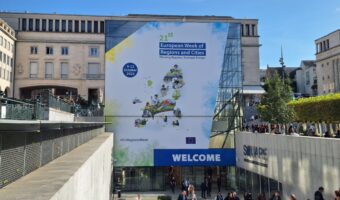From October 9th to 12th, 2023, the European Week of Regions and Cities (#EURegionsWeek) took place in Brussels. This is the largest European Union regional policy event, where local governments and non-governmental organisations present their ideas and achievements through conferences, exhibitions, and events. A significant portion of the activities focused on energy transition.
We learn by example.
”On October 10th, Anna Zsófia Bajomi from FEANTSA (European Federation of National Organizations Working with Homeless People) organised a panel and workshop,“Clean and affordable heat for all: heat transition for vulnerable solid fuel users”, dedicated to options for implementing solutions for district heating in rural areas. Roberto Patrascoiu (Habitat for Humanity Romania) presented an example of a community from Romania. Aranka Rostás (Lightbringers Association) showed a village in Hungary where access to electricity, gas, and running water is challenging. For both localisations, the only available heating source is wood.
Jan Frankowski, in turn, cited an example from a remote village in northern Poland. The village visited during this year’s field research within the project Energy poverty of women in Poland is grappling with a rapidly ageing local community. It struggles with the deteriorating technical condition of pre-German and post-state-collective farm buildings heated with coal or wood. Low incomes and work on the grey market are also the problem.
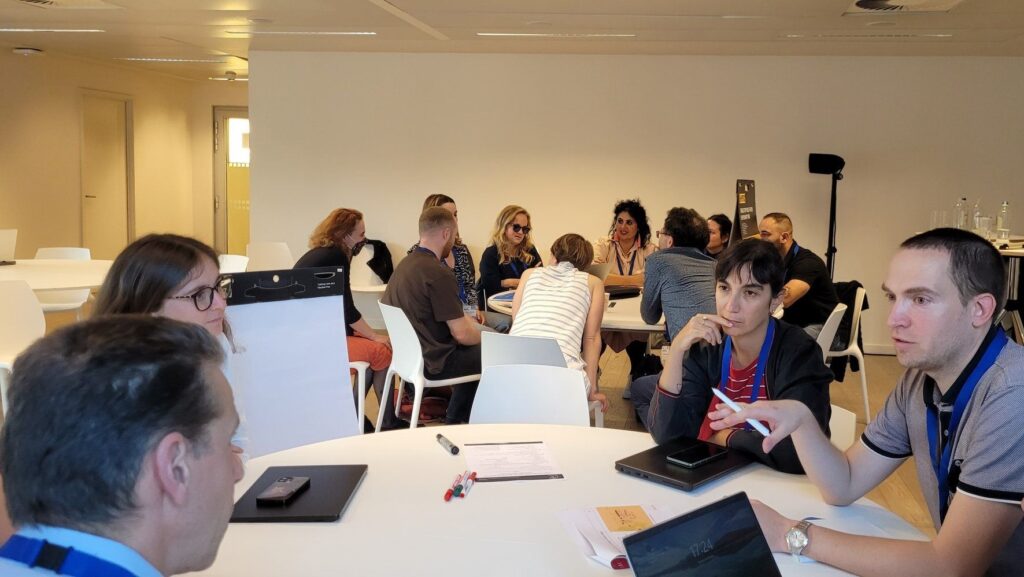
Subsequently, with the workshop participants, discussions revolved around possible technical solutions for Hungarian and Polish rural areas. Among the solutions discussed for Poland were:
- utilising the similarity of buildings and the potential for scalable partial renovations (e.g., window/roof replacements)
- public-private partnerships with nearby biogas plant
- investment in a shared boiler room and a small district heating system to replace individual heat sources
- expansion of electricity distribution networks with a focus on electrification capabilities.
From the detail to the whole
Administrative-housing solutions proposed by participants included:
- creating a comprehensive renovation plan for such neighbourhoods
- involving Green Ambassadors as advisors to women village leaders, who would cooperate with local governments and energy efficiency financing institutions
- ”promoting the concept of “second homes” that migrated to maintain the housing stock over the next 10-20 years.“
- relocating residents in a challenging situation to well-heated communal buildings within the municipality with better access to everyday services.
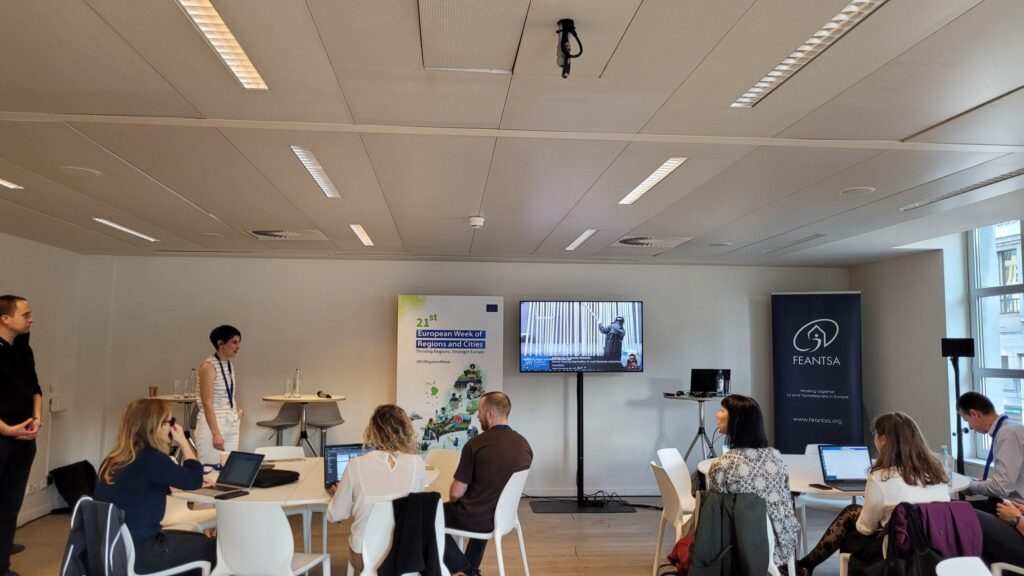
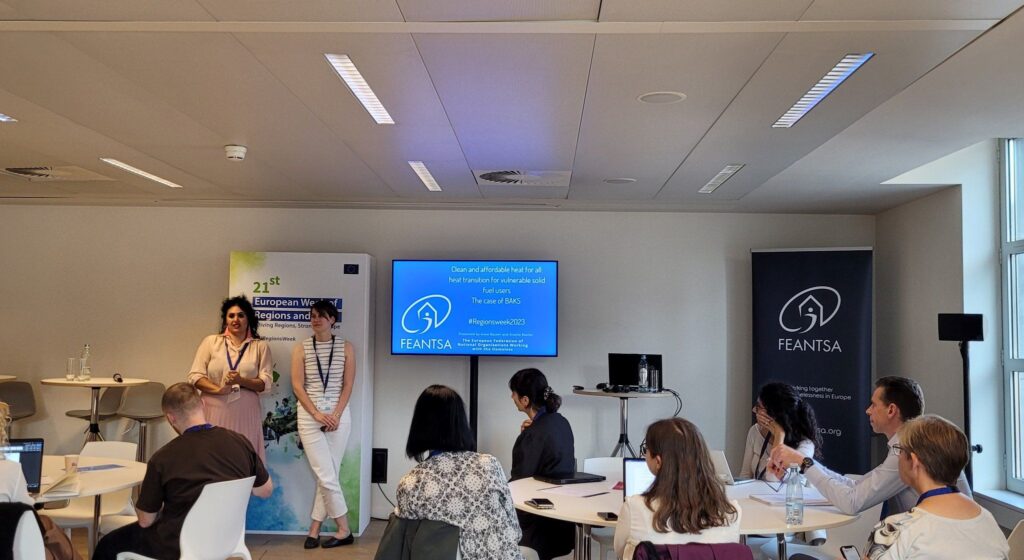
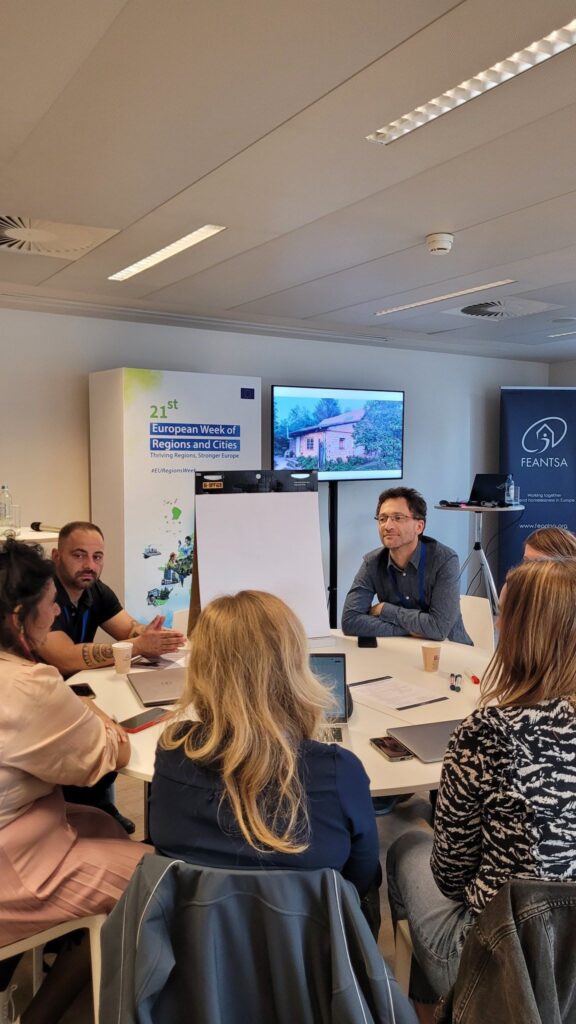
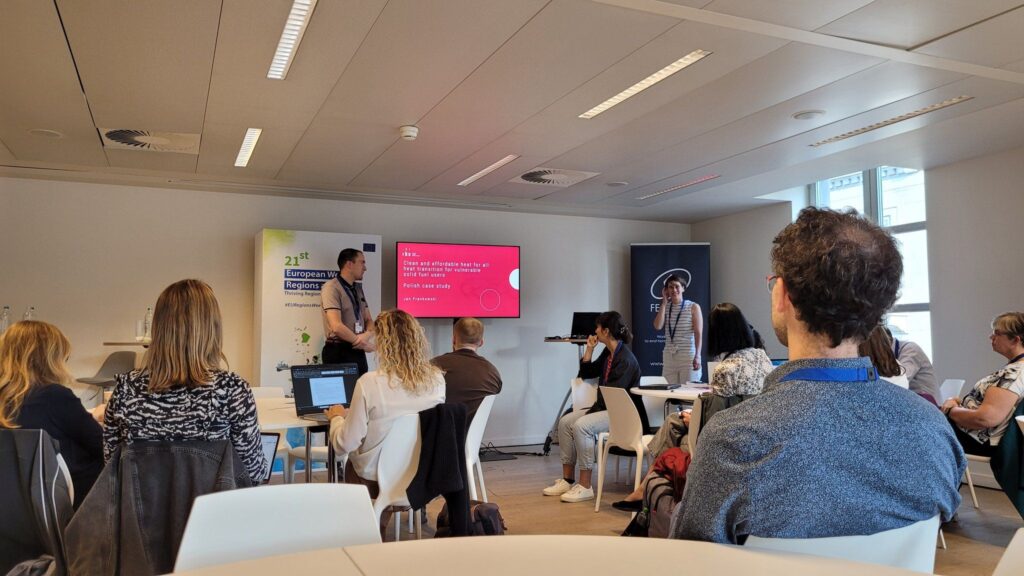
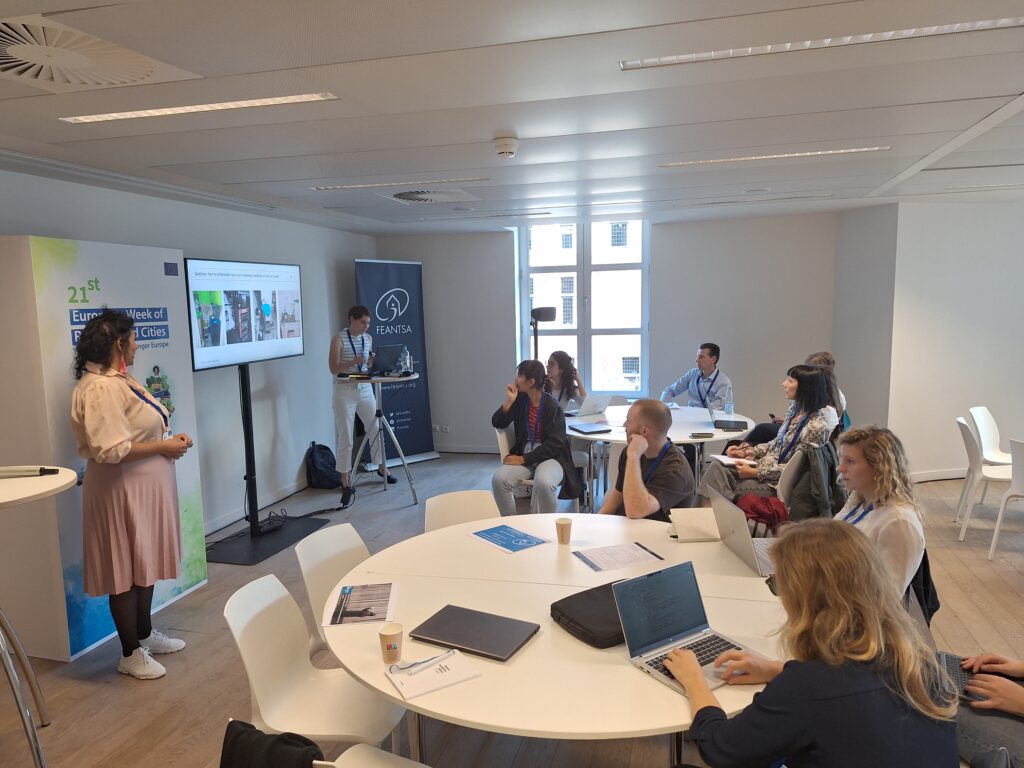
Individuals from various countries attended the European Week of Regions and Cities 2023 workshop. These were representatives of European Union institutions, think tanks, business representatives, and the European Poverty Advisory Hub. This exercise presented the perspective of people heating their homes with solid fuels in Central and Eastern European countries. We aimed to show their challenges to the specialists working on energy efficiency solutions in Brussels.
